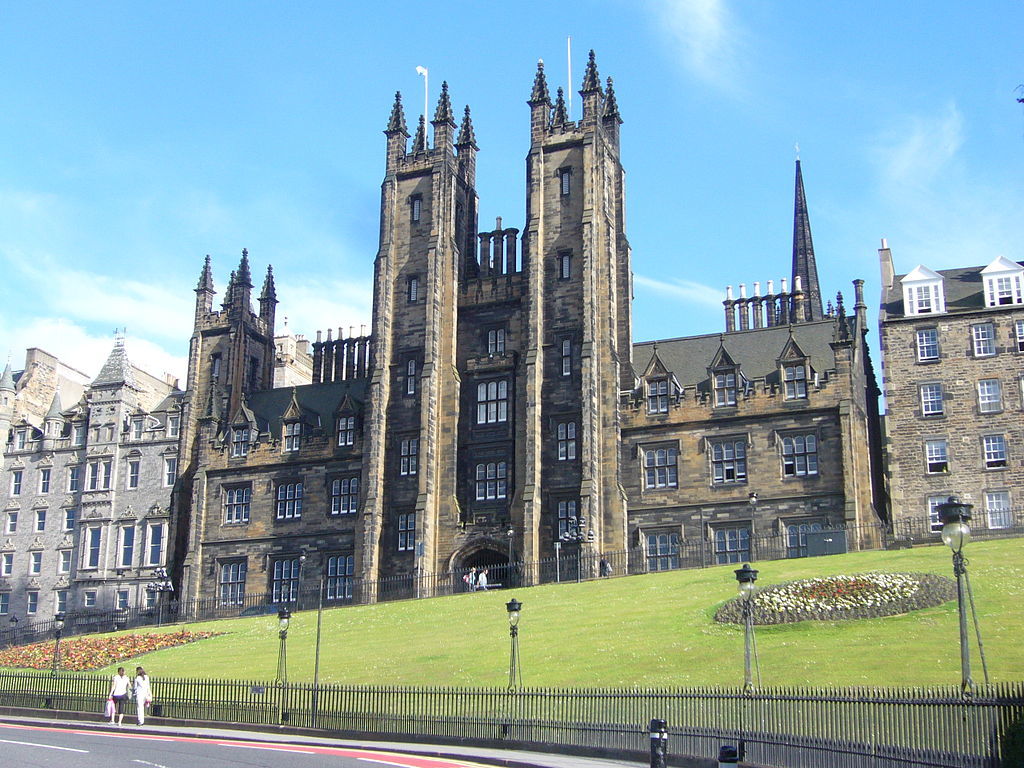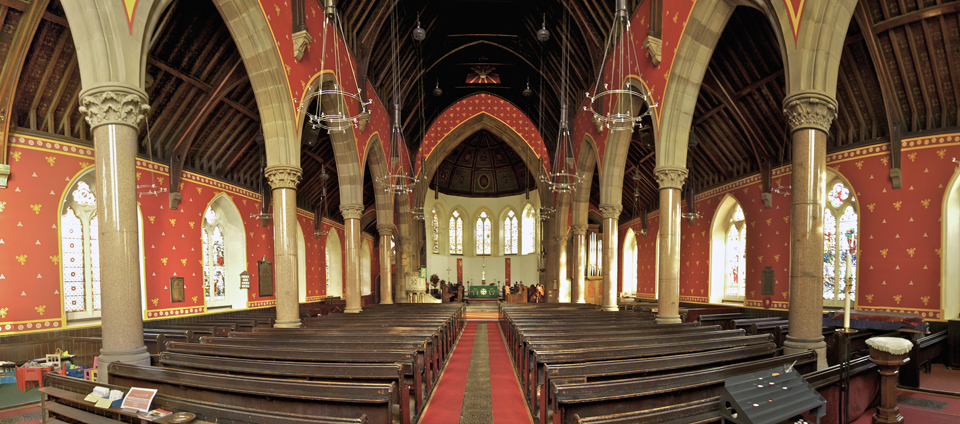

I contribute to the teaching of Science & Religion at the School of Divinity in the University of Edinburgh, particularly a MSc programme funded initially by the John Templeton Foundation. This is one of the few full programmes in the subject anywhere in the world, and is an excellent stand-alone introduction to this fascinating area; it also offers solid preparation for pursuing related PhD research.
In the future, there will be a link here to teaching-related material. Meanwhile, students may find useful material from articles available from this page.
I am a Christian physicist. Many have asked me, 'If you're a scientist, how can you believe in God?'
Whether the questioner is a believer or not, I often detect incredulity behind the question, recalling that
famous scene in Alice in Wonderland in which the Red Queen counsels Alice to practise believing in impossible things
before breakfast every day.
I don't know how to answer this question in 'sound bites'. It recalls a scene in John's Gospel (Chapter 1 verses 43-51). Jesus had just called Philip to follow him. Philip went to Nathanael
and told him that he had found the Messiah, Jesus of Nazareth. Nathanel replied incredulously, 'Can anything good come out of Nazareth?'
Philip had no sound bites to offer. He simply said to Nathanael, 'Come and see!' To know why I can
be a scientist and believe in God, you need not just my words, but to come and see my work, my worship, my life.
Words, of course, do matter. The best way of offering an apologia ('a written defence or justification of the opinions or conduct of a writer', OED)
for my science and my faith is by telling a story.
Here is a chapter in R. J. (Sam) Berry's edited volume, Real Scientists, Real Faith, which
recounts my
spiritual autobiography as a scientist, and suggests how I think the crucified Christ is the foundation of a
'laboratory spirituality' for today.
If you want to know what I think about the old chestnut of 'creation and evolution',
here is a chapter in another of Sam Berry's edited volumes, Christians and Evolution,
giving a pastoral angle on how I came to change my mind about the subject.
Finally, here is an article I published with my friend and colleague Tom McLeish explaining
the Christian vocation of being scientists, for which see also a sermon I preached on 21/09/08.

Long ago, when the discipline of 'theology' as we know it today - the rational enquiry into the things of God - was in its infancy, St. Anselm of Canterbury (ca. 1033 - 1109, whose seal is shown above) pointed out that faith was logically prior to ratiocination. Theological enquiry, he said, was 'faith seeking understanding' (fides quaerens intellectum). To my mind, the matter is no different in all other areas of human intellectual endeavour, science included. (Michael Polanyi, a distinguished physical chemist turned philosopher of science, gives a superb account of this point in his book Personal Knowledge.)
Metaphorically, faith is the 'operating system' for all human thinking. Every computer needs an operating system before it can even take input from the keyboard; as the philosopher Mary Midgley has said in her Gifford Lectures, faith is that which everyone needs before he or she can even begin to ask any questions. We can't do without it, but we can choose which one to pick, or even use two on different occasions! It is true that some operating systems are incompatible with each other. But that is not to say that we can do without one all together.
So let's not have any of this nonsense about 'faith' being fundamentally incompatible with science. The really interesting questions are to do with how well founded different faiths are, and how different faiths interact with each other, including different religious Faiths (now with a capital 'F').
Richard Dawkins suggests that St. Thomas the apostle should be the patron saint of scientist, because he doubted and demanded evidence rather than 'just exercised faith'. Here is an article explaining why I agree that St. Thomas should be the scientist's patron saint, but for a different reason. In fact Thomas exercised faith in a remarkably similar way to the way great scientists exercise faith when they make important discoveries, as a comparison of the story of Thomas's confession of Jesus as God in John's Gospel (Chapter 20) with how J. J. Thomson discovered the electron shows.

(All my sermons preached at St. Peter's Lutton Place, pictured above, are available from here.)
Giving voice to creation - a Christian vocation in science 21/09/08
The dark side of creation (Science, the book of Job, and the problem of suffering) 18/10/09
Annunciation is for life, not just for Christmas (Annunciation and the scientist) 21/12/14
How do you look at stars and end up with a baby in a manger? (Epiphany, science and God) 04/01/15

My current work in this area with St. Peter's Church, Lutton Place, is part of the Scientists in Congregations Scotland project, which is funded by the John Templeton Foundation.
If you want to know about the St. Peter's project and the worship/teaching material we are developing, please contact me or Derek Harley, our SiC project officer, at the Church office.
Science and religion’ is a growth business. Hardly a week goes by without a new book or public lecture.
Nevertheless, much of this activity smacks of ‘special interest’,
and hardly touches the life of congregations.
Thus, the wealth of scientific knowledge makes little impact on the way Christians worship and educate.
Congregations are denied opportunities for worshipful wonder, and are ill prepared for discipleship in a scientific and technological world.
Such withdrawal of the church from science,
which is not true of the visual arts, music, and literature,
is not made good by the occasional talk on ‘science and religion’. It also leaves this whole area of discourse
in the hands of creationists, whose 'zeal ... not according to knowledge' (Romans 10:1) is
so damaging to the church and to science education (for which see also my essay here).
I therefore have a long-term interest in re-integrating science into the fabric of congregational life,
by involving scientists to develop liturgical material for public worship, spiritual readings for private devotion and as ministerial aids,
and Sunday School lessons to communicate to children that science and faith can be allies.
The goal is that ‘science and faith’ should no longer be a ‘special interest’ for the few, but an on-going part of faith and discipleship for the many.